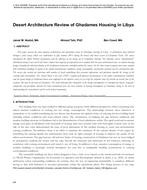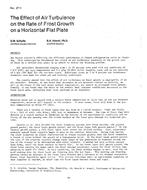The air-conditioning system is a big energy consumer of buildings, representing around 30% of total energy consumption on commercial buildings, considering the climate of the city of Sao Paulo, Brazil. The adoption of air-conditioning systems that use alternative sources of supply can contribute significantly on energy costs reduction and, considering the current Brazilian energy scenario, the use of natural gas source technologies could be advantageous. In office buildings, the use of a Gas Heat Pump air-conditioning system may enable to meet thermal loads with reduced costs, if compared to a conventional electrical system, with the advantage of reducing the energy demand of the whole building, mainly due to on-peak energy rates and considering reduction on electric infrastructure. Considering those issues, the purpose of this study was to technically investigate the retrofit of a conventional electric air-conditioning system of an existing office building to a Gas Heat Pump system. A data assembling of operating office buildings in the city of Sao Paulo with potential for retrofit was raised and analysed, and a representative case study in an existing office building was developed, using computer simulation to evaluate energy performance of the proposed system versus the existing system. Results show that 16.7% of the data assembling have technical feasibility on performing a retrofit of the air-conditioning system, considering parameters adopted in this study. The specific case study presented an advantageous output on trading the energy source of the air-conditioning system from electricity to natural gas, showing annual energy savings of 30.3% in cost for GHP Scenario, with a 38% reduction in annual electricity consumption./p>
Citation: 2017 Annual Conference, Long Beach, CA, Conference Papers
Product Details
- Published:
- 2017
- Number of Pages:
- 8
- Units of Measure:
- Dual
- File Size:
- 1 file , 750 KB
- Product Code(s):
- D-LB-17-C041


